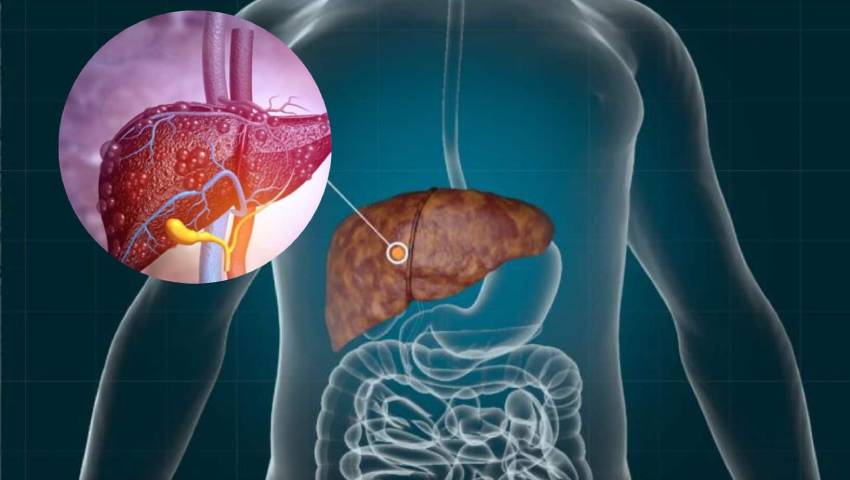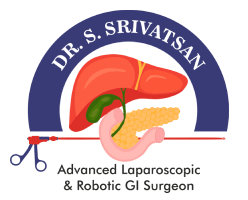
- 08/07/2024
- Dr. Srivatsan Gurumurthy
- 0 Comments
- Blog
All you need to Know about Fatty Liver
Did you know? Dr. Srivatsan Gurumurthy suggests that fatty liver disease is at the core of most liver disorders including liver cancer in India, contributing to the total disease burden of the country. In India, one in three people, or 30% of the population, have fatty liver disease. Among its many other crucial functions, the liver is an organ that removes toxins from the blood, aids in digestion by producing bile, and controls energy levels. Fatty liver disease, also known as hepatic steatosis, is a condition characterized by the accumulation of fat in the liver cells. Dr. Srivatsan Gurumurthy at GEM Hospital in Chennai provides a comprehensive overview of fatty liver disease, covering its types, causes, symptoms, diagnosis, treatment options, and prevention strategies.
What is Fatty Liver Disease?
Fatty liver disease happens when too much fat builds up in liver cells. This disease can be categorized into two main types:
- Non-alcoholic Fatty Liver Disease (NAFLD): This type of fatty liver disease is not related to alcohol consumption. It is often associated with obesity, insulin resistance, diabetes, high cholesterol, and metabolic syndrome.
- Alcoholic Fatty Liver Disease (AFLD): AFLD is caused by excessive alcohol consumption over time. It can lead to inflammation and liver injury if not addressed.
Causes of Fatty Liver Disease:
- NAFLD: Obesity, insulin resistance, type 2 diabetes, high cholesterol, metabolic syndrome, rapid weight loss, certain medications, and genetic factors.
- AFLD: Excessive and prolonged alcohol consumption.
Signs & Symptoms of Fatty Liver Disease:
Dr. Srivatsan Gurumurthy offers Liver disease treatment in Chennai and He explains a few of the signs of a fatty liver as follows:
- Fatigue and pain in the upper right stomach
- The skin and eyes are yellowish
- Swelling in the legs and ankles
- Itchy skin
- Dark urine color
- Nausea or vomiting
How is Fatty Liver Disease Diagnosed?
Diagnosing fatty liver disease typically involves:
- Blood tests: These check your liver enzymes and overall health. Abnormal enzyme levels can indicate liver problems.
- Imaging tests: An ultrasound is usually the first choice as it’s painless and widely available. It can show fat deposits in the liver. Other imaging options include MRI or CT scans for a more detailed picture.
- Liver biopsy: This is the most definitive test but also the most invasive. A thin needle extracts a tiny tissue sample for examination under a microscope. It can confirm NAFLD and assess for inflammation or scarring.
Treatment of Fatty Liver Disease:
There is no exact medication for fatty liver disease. The first line of treatment is to lose weight and quit drinking alcohol. People with fatty liver disease can reverse the disease by making lifestyle changes. You are advised to modify your diet, do regular exercise, and reduce your weight. If severely impacted, a liver transplant may be the only option.
Lifestyle Changes to Prevent Fatty Liver:
Check the modifications that you can make in your lifestyle to prevent fatty liver:
- Diet: Focus on a healthy diet low in soaked fat, added sugar, and refined carbs. Select plenty of fruits, vegetables, and whole grains. Limit your intake of red meat, processed foods, and sugary beverages.
- Exercise regularly: Seek at least 30 minutes of moderate-intensity exercise most days of the week. Exercise helps your body burn fat and improve insulin sensitivity, which can help reduce fat storage in the liver.
- Weight loss: If you are overweight or obese, losing even a small amount of weight can greatly enhance your liver health.
- Reduce alcohol intake: Heavy alcohol consumption is a major risk factor for fatty liver disease. If you drink liquor, do so in moderation.
- Control diabetes: If you have diabetes, it is important to control your blood sugar levels. High blood sugar can contribute to fat storage in the liver.
- Increase fiber intake: Fiber helps to control blood sugar levels and can also help to reduce cholesterol levels. Seek at least 25 grams of fiber per day.
- Consider coffee: Studies have indicated that coffee consumption may be protecting against fatty liver disease.
- Get sufficient sleep: Aim for 7-8 hours of rest each night. Poor sleep can disrupt hormones that regulate metabolism and may contribute to fatty liver disease.
Fatty liver disease is a growing concern worldwide, closely linked to lifestyle factors and metabolic health. Awareness, early detection, and proactive management are key to preventing its progression to more severe liver conditions. By adopting a healthy lifestyle and seeking medical advice when needed, individuals can mitigate the risks associated with fatty liver disease and maintain liver health for the long term. If you are concerned about your liver disease, speak to Dr. Srivatsan Gurumurthy about getting tested for fatty liver disease and taking steps to prevent its progression. Consult with Dr. Srivatsan Gurumurthy is the best Liver Transplant Surgery in Chennai and get the affordable cost of a liver transplant in India: +91 9962533472
